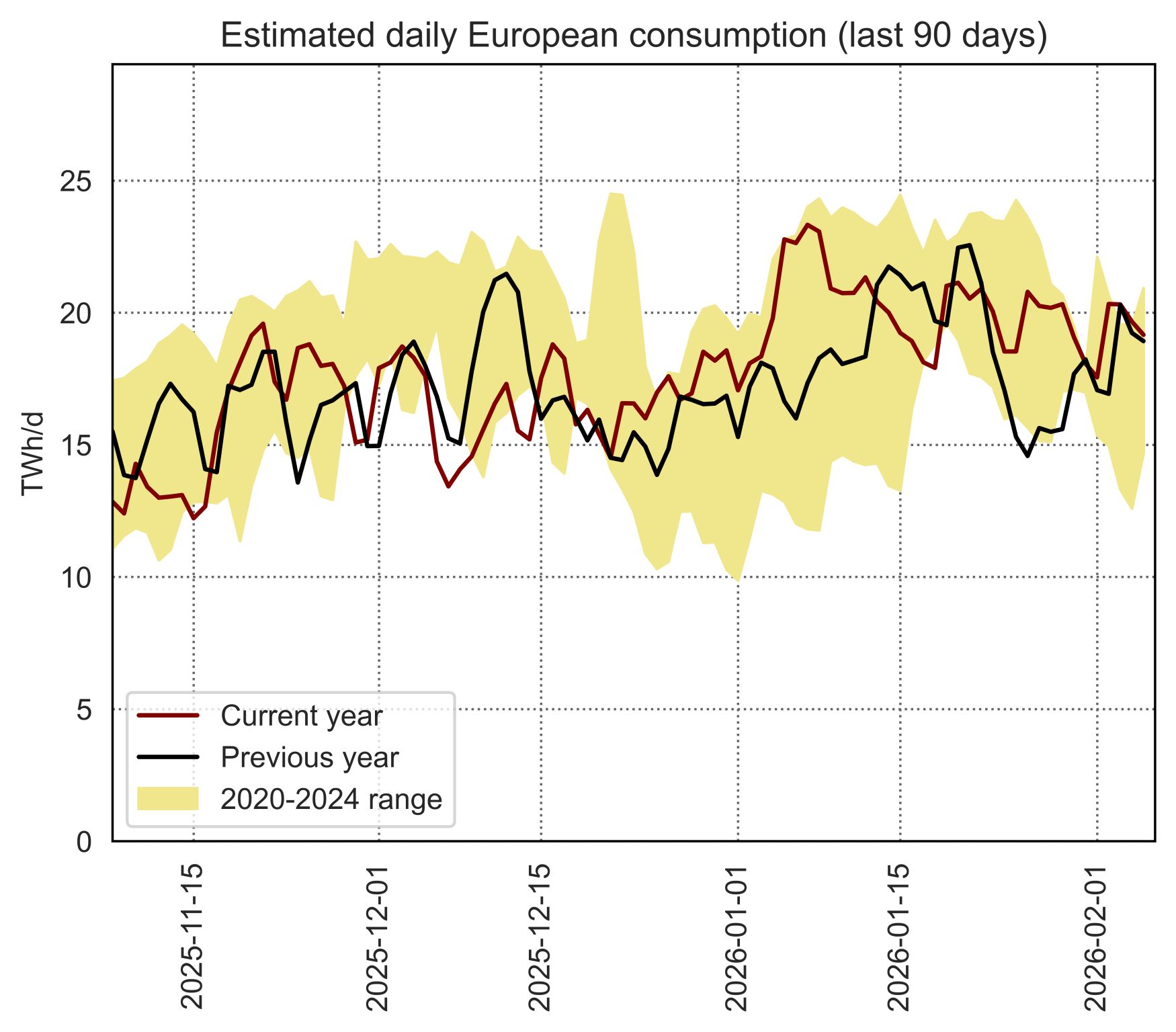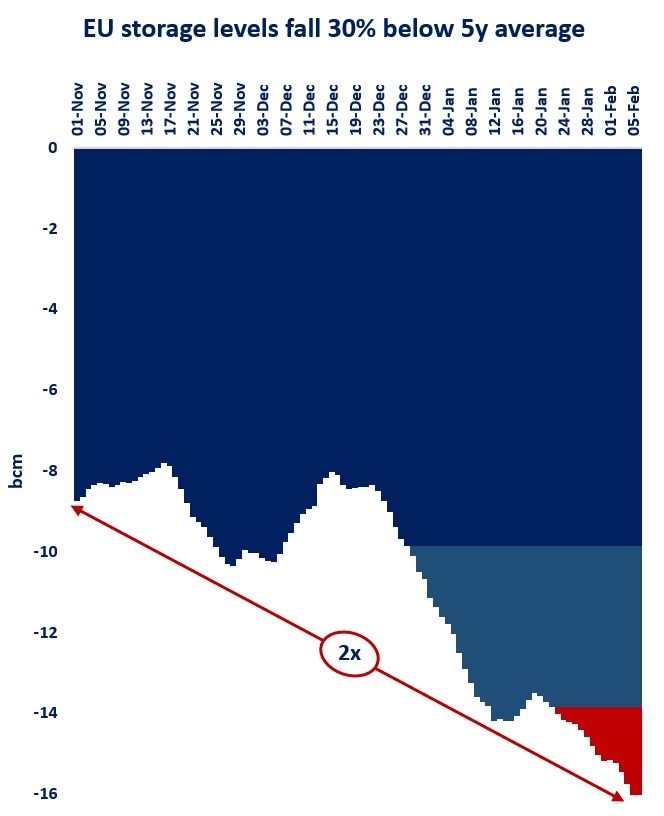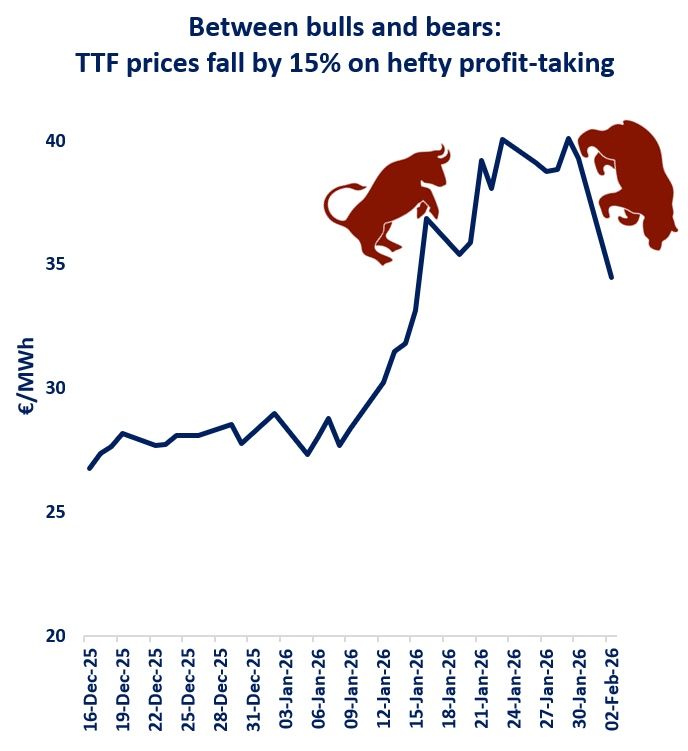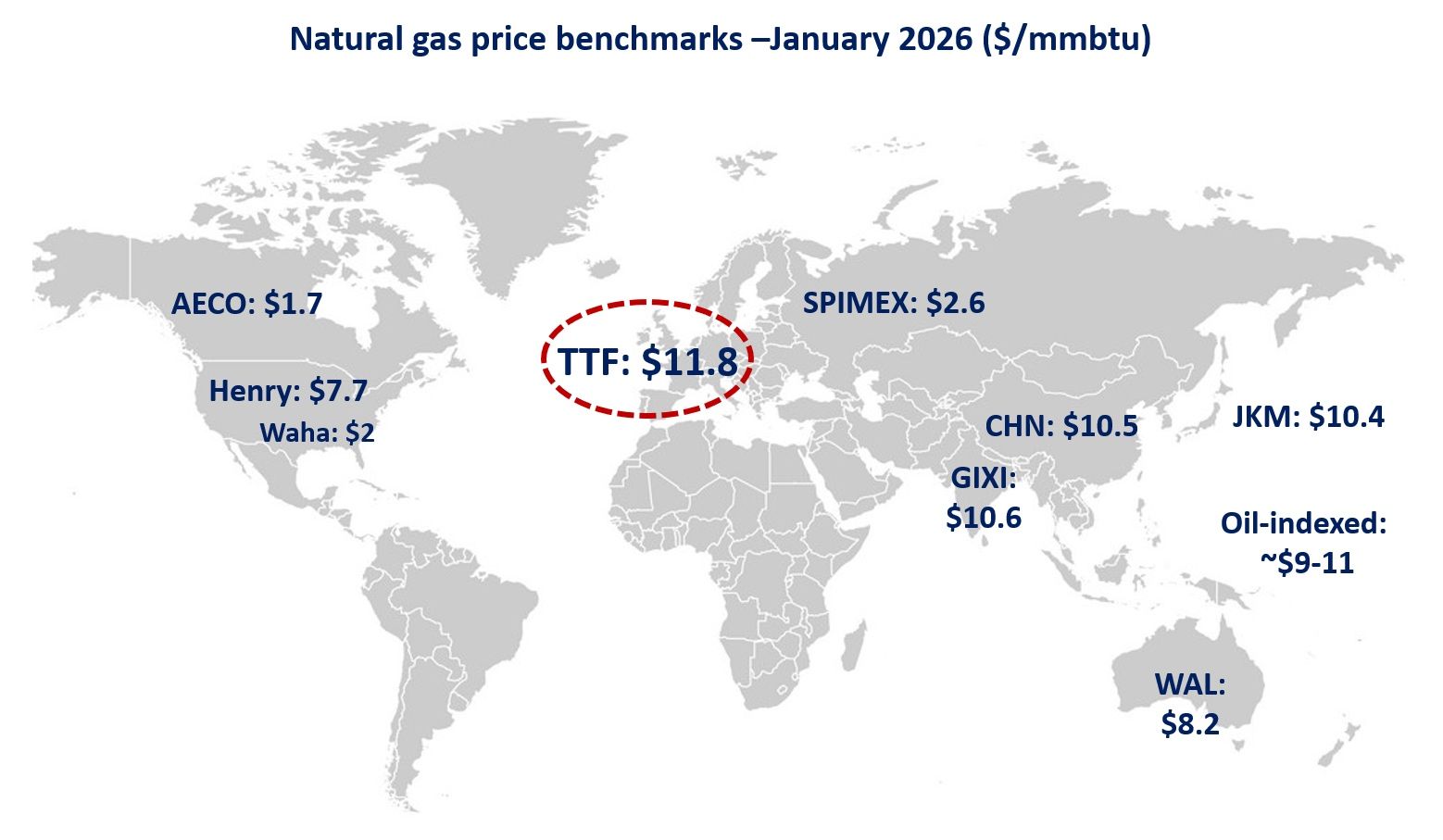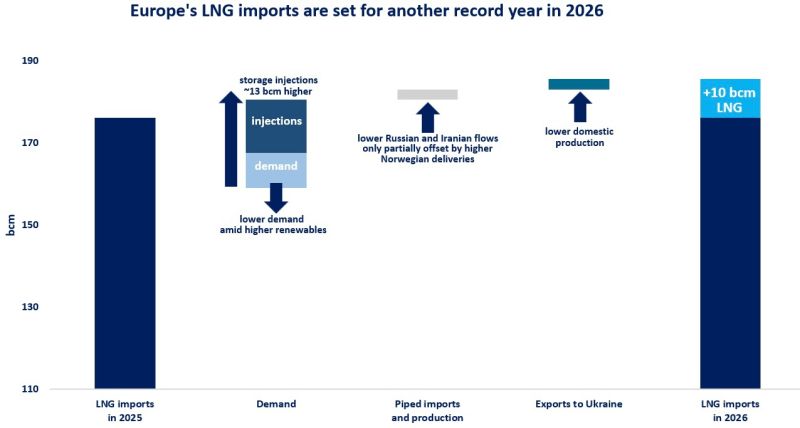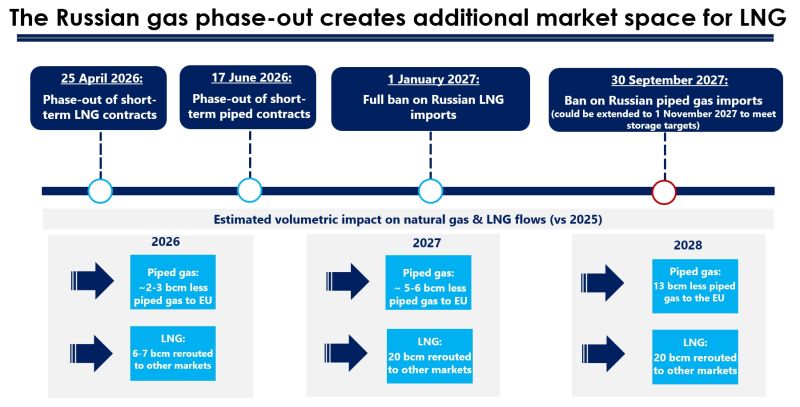
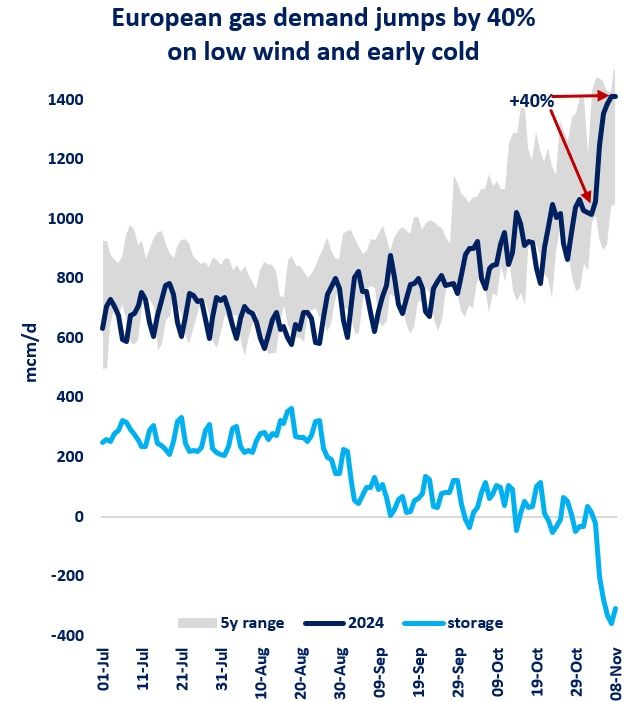
European gas demand surged by 40% through last week, with low wind speeds boosting gas-fired powgen, and colder temperatures driving up space heating requirements.
Last week’s dunkelflaute once again demonstrated the flexibility of gas supply in an increasingly weather-dependent energy system.
Wind power output declined by more than 40% week-on-week, which drove-up day-ahead electricity prices to over €800/MWh in Germany -their highest level since the 2022 energy crisis.
The shortfall in wind power output was largely compensated by stronger gas burn in the power sector, which soared by more than 50% week-on-week.
In addition, colder temperatures boosted space heating demand across the residential and commercial sectors, with their consumption rising by around 45% week-on-week.
Gas storage sites played a key role in mitigating last week’s dunkelflaute. Storage withdrawals accounted for more than 80% of incremental gas demand, once again highlighting the unmatched flexibility of the gas system.
Altogether, last week’s gas demand stood 10% above its 5y average, highlighting that a cold and still winter could easily boost Europe’s gas demand and renew market tensions.
Gas supply flexibility will be key as we transition towards a cleaner but increasingly weather-dependent energy system.
What is your view? How will gas demand evolve this heating season? Could we see a colder winter? How to further enhance gas supply flexibility?
Source: Greg MOLNAR

